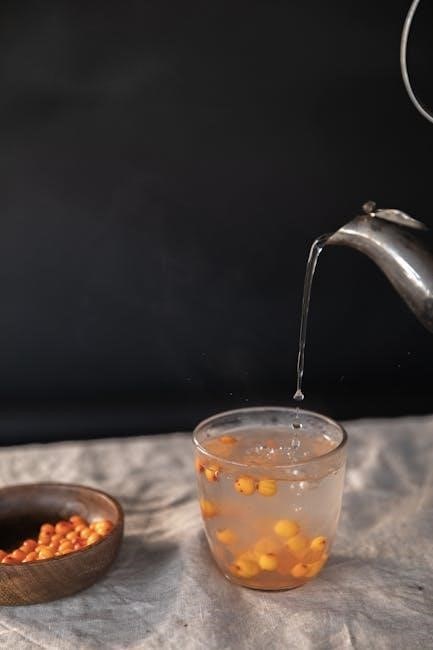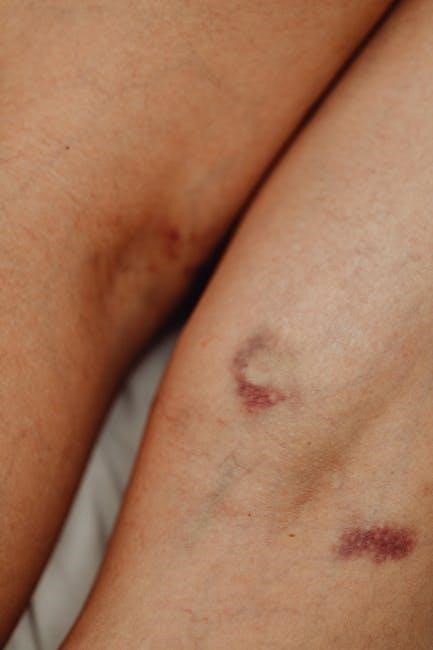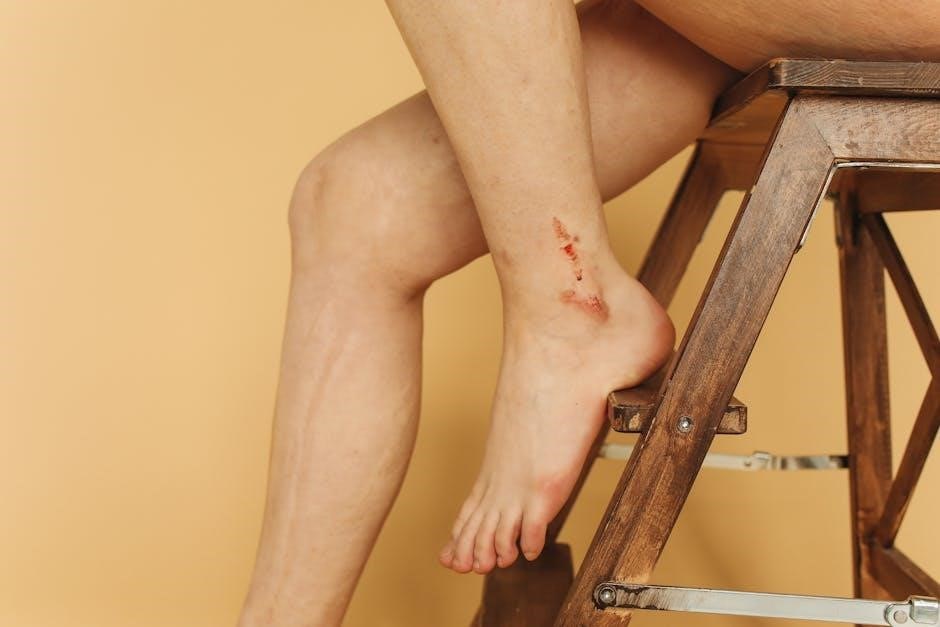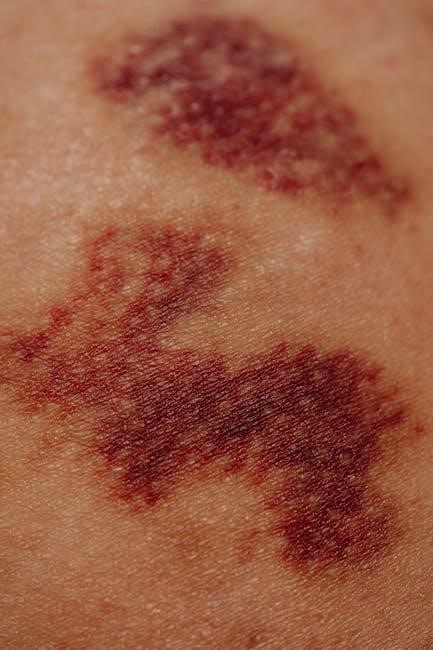Nutrition plays a crucial role in wound healing, with proper nutrients supporting the healing process, as seen in various nutrition and wound healing pdf resources available online today always.
Importance of Nutrition in Wound Healing
Nutrition is essential for wound healing, as it provides the necessary building blocks for tissue repair and regeneration. A well-balanced diet that includes adequate protein, carbohydrates, and healthy fats supports the healing process. According to various nutrition and wound healing pdf resources, proper nutrition helps to promote collagen synthesis, improve wound strength, and reduce the risk of complications. Additionally, nutrition plays a critical role in maintaining a healthy immune system, which is vital for preventing infection and promoting wound healing. A nutrition and wound healing pdf can provide valuable information on the importance of nutrition in wound healing, including the role of specific nutrients and dietary recommendations for optimal healing. By prioritizing nutrition, individuals can support their body’s natural healing processes and promote optimal wound healing outcomes. Overall, nutrition is a critical component of wound healing, and its importance should not be overlooked.
Role of Nutritional Factors in Wound Healing
Nutritional factors play a significant role in wound healing, with various nutrients contributing to the different stages of the healing process. According to nutrition and wound healing pdf resources, carbohydrates, protein, and healthy fats provide energy and support tissue repair. Vitamin C and zinc are also essential for collagen synthesis and immune function. Other nutrients, such as iron and copper, support the production of red blood cells and connective tissue. A well-balanced diet that includes these nutrients can help to support wound healing. Nutrition and wound healing pdf documents often outline the specific nutritional requirements for optimal wound healing, including the recommended daily intake of various nutrients. By understanding the role of nutritional factors in wound healing, individuals can make informed decisions about their diet and lifestyle to support the healing process. Proper nutrition can help to promote healthy wound healing and reduce the risk of complications.

Nutritional Requirements for Wound Healing
Nutrition and wound healing pdf resources outline specific dietary needs for optimal healing always requiring balanced intake of nutrients daily.
Carbohydrates and Protein in Wound Healing
According to nutrition and wound healing pdf resources, carbohydrates and protein are essential nutrients that support wound healing by providing energy and building blocks for tissue repair. A balanced diet that includes adequate amounts of carbohydrates and protein can help promote wound healing. Carbohydrates provide energy for the healing process, while protein is necessary for the synthesis of new tissue. The recommended daily intake of protein for wound healing is higher than the normal recommended intake, and can be achieved through a variety of food sources, including lean meats, fish, and dairy products. Additionally, carbohydrates can be obtained from whole grains, fruits, and vegetables, which also provide essential vitamins and minerals that support wound healing. A healthy diet that includes a balance of carbohydrates and protein can help support the wound healing process and promote optimal recovery. Proper nutrition is essential for wound healing.
Vitamins and Minerals in Wound Healing
Vitamins and minerals play a crucial role in wound healing, as they help to support the immune system and promote tissue repair. Vitamin C, for example, is important for the production of collagen, a protein that gives structure to skin and other tissues. Vitamin A is also essential for wound healing, as it helps to regulate the inflammatory response and promote tissue repair. Minerals such as zinc and iron are also important, as they help to support the immune system and promote the production of new tissue. A diet that is rich in fruits, vegetables, and whole grains can provide adequate amounts of these vitamins and minerals, supporting the wound healing process. Additionally, nutritional supplements may be recommended in some cases to ensure adequate intake of these essential nutrients. A balanced diet that includes a variety of foods can help to support wound healing and promote optimal recovery.

Impact of Poor Nutrition on Wound Healing
Poor nutrition can significantly impede wound healing processes always slowing recovery times greatly.
Consequences of Inadequate Nutrition on Wound Healing
Inadequate nutrition can have severe consequences on wound healing, including prolonged recovery times and increased risk of complications. A balanced diet rich in essential nutrients is crucial for optimal wound healing.
Nutritional deficiencies can impede the healing process, leading to poor wound outcomes and increased healthcare costs.
Adequate nutrition is essential for maintaining healthy skin and supporting the wound healing process, and nutritional deficiencies can have serious consequences on overall health and well-being, affecting wound healing rates and patient outcomes significantly always.
Effect of Malnutrition on Wound Healing Rates
Malnutrition can significantly impact wound healing rates, leading to delayed recovery and increased risk of complications. A malnourished individual may experience impaired wound healing due to lack of essential nutrients.
Nutritional status plays a critical role in determining wound healing outcomes, and malnutrition can lead to poor wound healing rates and increased morbidity.
Malnutrition can affect the body’s ability to heal wounds, making it essential to address nutritional deficiencies to promote optimal wound healing and improve patient outcomes, as evident in various nutrition and wound healing pdf resources, which emphasize the importance of proper nutrition in wound care always and significantly.

Optimal Nutrition for Wound Healing
Proper nutrition supports wound healing, with optimal nutrition plans available in nutrition and wound healing pdf resources online always providing necessary information and guidance.
Healthy Foods and Fluids for Wound Healing
Nutrition and wound healing pdf resources emphasize the importance of healthy foods and fluids in supporting the wound healing process. A balanced diet that includes a variety of fruits, vegetables, whole grains, and lean proteins can provide the necessary nutrients for optimal wound healing. Adequate hydration is also essential, with water and other fluids helping to promote healing and prevent complications. Additionally, foods rich in antioxidants, such as berries and leafy greens, can help to reduce inflammation and promote tissue repair. A well-nourished body is better equipped to heal wounds, and a healthy diet can help to support the healing process. By consuming a variety of healthy foods and staying hydrated, individuals can help to support their body’s natural healing processes and promote optimal wound healing. Proper nutrition is essential for wound healing, and healthy foods and fluids play a critical role.
Trace Minerals and Amino Acids in Wound Healing
Trace minerals and amino acids play a vital role in wound healing, as discussed in various nutrition and wound healing pdf resources. Zinc, iron, and copper are essential trace minerals that support the healing process, with zinc being particularly important for tissue repair and immune function. Amino acids, such as arginine, also contribute to wound healing by promoting collagen synthesis and tissue strength. These nutrients can be found in a variety of foods, including lean meats, fish, and whole grains. Adequate intake of these nutrients is essential for optimal wound healing, and deficiencies can impede the healing process. By ensuring adequate intake of trace minerals and amino acids, individuals can help to support their body’s natural healing processes and promote optimal wound healing. A well-balanced diet that includes these essential nutrients can help to support the wound healing process and reduce the risk of complications. Proper nutrition is critical for wound healing.

